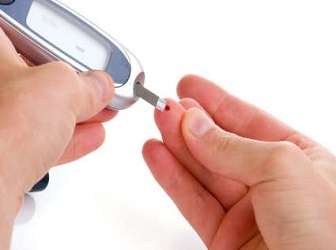Blood glucose values: when to seek medical attention
The blood glucose value, i.e. the level of glucose (sugar) in the blood, is the parameter that helps us control the presence or absence of diabetes. In the assumption of which the values are not adequate, when to seek medical attention?
Either type 1 or type 2, diabetes related to the difficulties of the body to properly metabolize sugars, both for lack or insufficiency of insulin, the hormone responsible for this function, as the resistance of the organism itself (the main symptom is the hyperglycemia).
Table of Contents
Blood glucose values: When to measure
The level of blood sugar is not the same throughout the day, even in healthy people or without diabetes problems. Early in the morning, fasting, the blood glucose concentration varies between 60 to 110 mg/dl. Levels that increase after meals, that is, food intake increases glucose production. Generally, two hours after meals, glucose levels return to normal, as long as no problems. There are different values of glucose to consider. On one hand, the value on empty stomach, which is usually measured in the morning (8 hours after the last meal), and postprandial glucose (measured two hours after a meal or the administration of glucose solution and water).
Blood glucose values: Analysis and measurements
To measure blood glucose need a blood test performed in the laboratory or a glucometer. In the latter case, the measurement can be performed by the doctor, or choose to do it at home or at the pharmacy.
Diabetes is not always presented with symptoms evident. In fact, it is considered a silent disease because it does not hurt, the signals may go unnoticed. In the absence of specific symptoms after 45 years are advisable to perform regular monitoring of blood sugar levels. The people at risk (people with overweight, hypertension, or family history of diabetes, for example) that the analysis should be performed as soon as possible and more often, getting the attention of the medical risk factors.
Blood glucose values: When to seek medical
A single blood glucose test is not sufficient to confirm or rule out diabetes. The diagnosis, as in any other disease, should be accurate and precise, for which input should perform different measurements, both fasting and after meals.
We can talk about diabetes when the blood glucose rate in empty stomach round 126 mg/dl (between 110 to 126 mg/dl), or is located at 199 mg/dl two hours after meals (between 140 to 199 mg/dl). In these cases, consult your doctor (if not already) and we could be facing a problem of diabetes. There are other symptoms that can alert us, as the weight loss without apparent cause, increased urination and constant thirst.
If there are risk factors, even before confirming diabetes – prediabetes – it is advisable to change the lifestyle, starting diet, and often repeating the tests.
